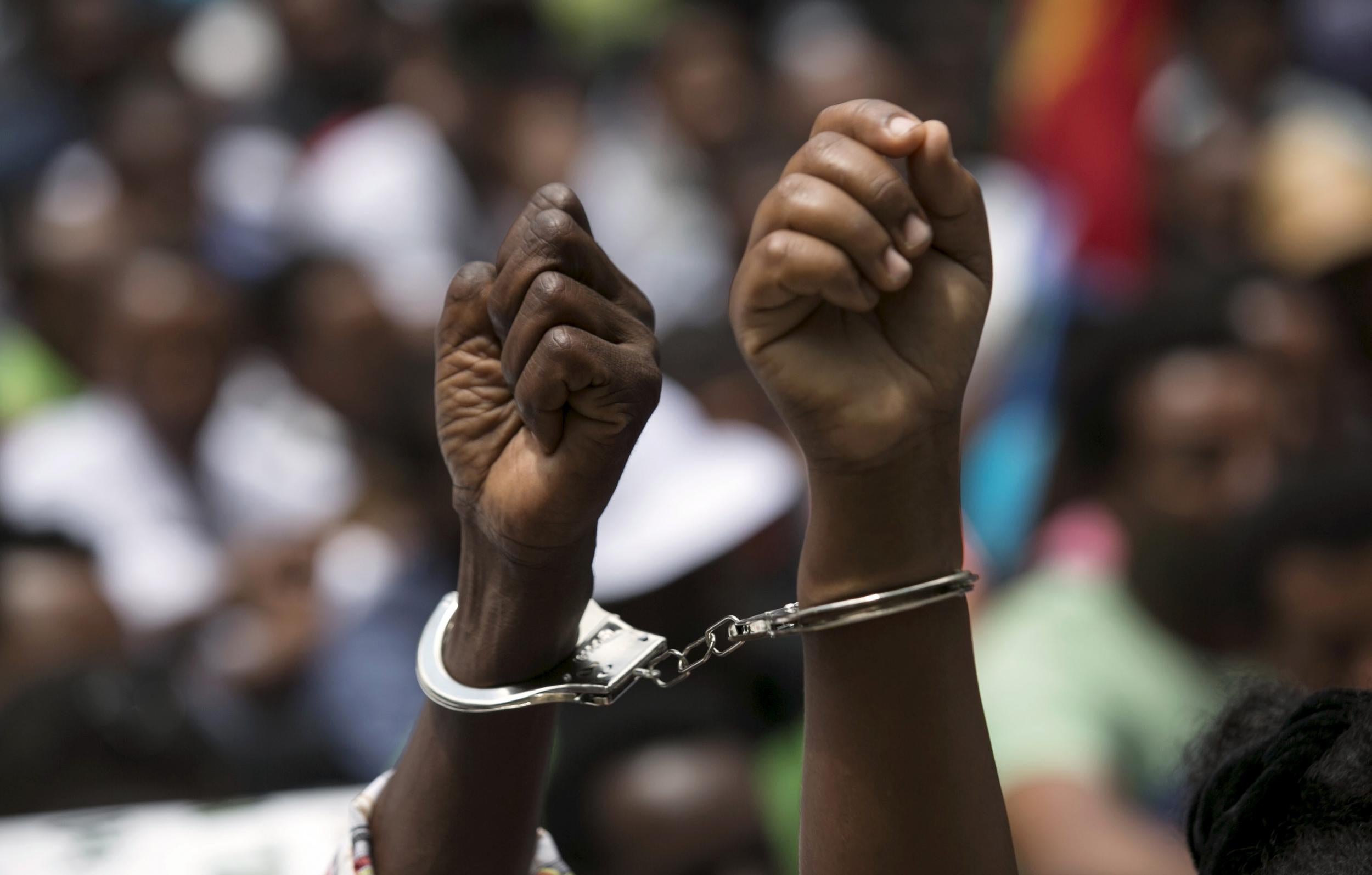Israel gives Eritrean grandfather it claims is 32 choice of deportation or prison
59-year-old Eritrean national Gabriot, the sole provider for his disabled daughter and two small grandchildren, says a translation mistake was made in registration documents erroneously recording his birthdate as 1986

Your support helps us to tell the story
From reproductive rights to climate change to Big Tech, The Independent is on the ground when the story is developing. Whether it's investigating the financials of Elon Musk's pro-Trump PAC or producing our latest documentary, 'The A Word', which shines a light on the American women fighting for reproductive rights, we know how important it is to parse out the facts from the messaging.
At such a critical moment in US history, we need reporters on the ground. Your donation allows us to keep sending journalists to speak to both sides of the story.
The Independent is trusted by Americans across the entire political spectrum. And unlike many other quality news outlets, we choose not to lock Americans out of our reporting and analysis with paywalls. We believe quality journalism should be available to everyone, paid for by those who can afford it.
Your support makes all the difference.A 59-year-old Eritrean man is due to be deported by Israel under controversial new rules for African asylum seekers because the state believes him to be 32, it has emerged.
The clearly middle-aged Gabriot, who has white hair and a lined face, says the mix up is due to a translation mistake in his papers when he arrived in Israel in 2008, Haaretz reported on Tuesday.
Despite several attempts to straighten the record in hearings with the interior ministry, he is expected to be deported to Rwanda or Uganda next month.
The Eritrean has children aged 34 and 37, and grandchildren aged one and five. He is the sole provider for his daughter’s children because she and his son-in-law were severely injured when an Israeli burned down their house in a 2012 hate crime and now cannot work. He currently works 11 hours a day, six days a week as a cleaner to support the family.
“How is it possible to deport me from Israel?” he told Haaretz.
“I’m an old man; I no longer have the strength to move to a different country. And if they deport me, it’s like killing my daughter and grandchildren, who will remain without help. They need the money I give them... nobody’s helping them.”
The Israeli authorities announced a initiative last November to make 40,000 African migrants and asylum seekers choose between deportation to a third country or face an unspecified amount of jail time.
Targeted asylum seekers, mostly Eritrean and Sudanese, are given an interview and one month in which to decide whether to leave Israel voluntarily. If they refuse, they are given a hearing in which a population authority official can decide whether to jail them or not.
The elderly, women, children, fathers of minor children and victims of slavery or human trafficking are not supposed to be targeted for deportation.
It is reported that the third countries the asylum seekers are being deported to are Rwanda and Uganda, although both deny they have struck any kind of deal with the Israeli government.
Travel documents and plane fare is provided by Israel and deportees are given $3,500 (£2,510) cash to help them set up on arrival.
Those who have arrived in Rwanda report having their documents confiscated on arrival and having basic rights denied, many ending up on the streets.
The plans were met with outrage by human rights groups as well as protests and hunger strikes by targeted detainees. An appeal to the Supreme Court last month suspended the operation.
The government has until 2 April to provide more details of the programme. Deportations are expected to begin again shortly after.
Gabriot, who first came to Israel illegally in 2008 after fleeing 11 years of military conscription in Eritrea, eventually obtained legal temporary residency permits.
He applied for asylum in 2014 but was rejected on the grounds that Eritrean military desertion is not sufficient grounds for an asylum claim.
Refugee aid organisation Hebrew Immigrant Aid Society (Hias) has filed a petition in Gabriot’s case which resulted in a temporary restraining order against his deportation.
While officials have previously admitted that he doesn’t look like he is in his 30s - a reason he was not sent to the asylum seeker detention facility in the south of the country - the Population, Immigration and Border Authority is insisting Gabriot’s recorded 1986 birthdate is grounds for deportation.
As per its policy Israel’s immigration authority declined to comment, inviting Gabriot’s family and the NGO’s lawyers to appeal in the usual way.
Join our commenting forum
Join thought-provoking conversations, follow other Independent readers and see their replies
Comments